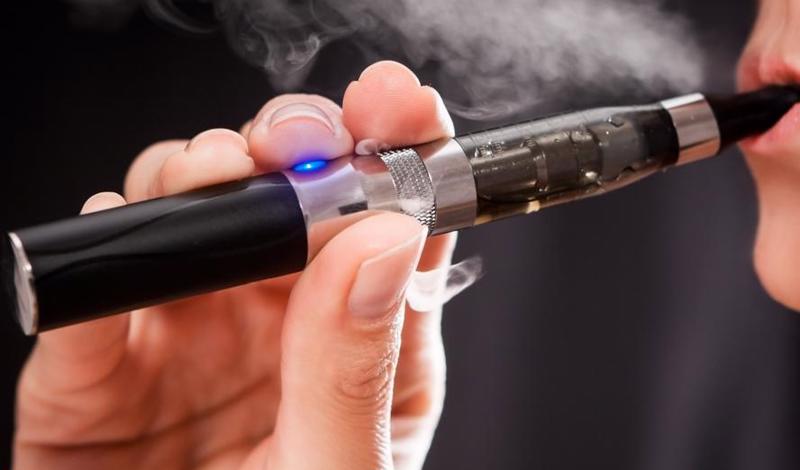Vietnam's health and trade ministries are locked in a debate over the appropriate response to the rapidly growing use of e-cigarettes and heated tobacco products.
While the Ministry of Health (MoH) advocates for a complete ban, the Ministry of Industry and Trade (MoIT) seeks to implement a pilot program to gauge the market and potential impact.
This legislative deadlock arises from a legal gray area surrounding these new-generation tobacco products. Existing tobacco control laws do not specifically address e-cigarettes or heated tobacco, which has fueled both licit and illicit trade of these products.
MoH Pushes for Comprehensive Ban
MoH Minister Dao Hong Lan maintains a steadfast stance against e-cigarettes and heated tobacco products, citing serious health concerns and the dangers they pose, particularly to young people as she addressed the National Assembly's Social Committee on May 4.
According to the ministry's research, these products contain harmful chemicals and can be as addictive and damaging as traditional cigarettes, potentially leading to cancer, lung disease, and cardiovascular problems.
The ministry underscores that e-cigarettes often contain enticing flavors and sleek designs specifically marketed toward young people. This, they argue, increases the likelihood of addiction and serves as a gateway to traditional smoking.
Minister Lan emphasized that the proposed ban aligns with the Party's directives, established legal frameworks, the government's tobacco harm prevention strategy, and the well-documented dangers of e-cigarettes drawn from international experience.
"The Ministry of Health maintains its position on the necessity of a ban," Minister Lan asserted, citing the immeasurable health risks posed by e-cigarettes and heated tobacco products.
She underscored the alarming statistic that tobacco-related illnesses claim approximately 40,000 lives annually in Vietnam.
"With these new products disproportionately targeting younger generations, should we risk a pilot program with potentially irreversible consequences? Who bears the ultimate responsibility for protecting the health of the Vietnamese people?" Minister Lan questioned.
She warns of the unpredictable dangers of e-cigarettes, which can be laced with synthetic drugs, highlighting the alarming trend of e-cigarette use among teenagers and students, with reports of hospitalizations due to e-cigarette-related illnesses.
Referencing the World Health Organization's extensive analysis of global case studies, the Minister urged for decisive action based on existing evidence, stating that further deliberation is unnecessary.
MoIT Proposes Cautious Pilot Program
Contrasting this view, the MoIT emphasizes the need for evidence-based policymaking. The ministry believes a pilot program would allow for a controlled market study to better understand the potential benefits and risks of these products.
Mr. Ngo Khai Hoan, Deputy Director of the Industry Agency under MoIT, argues that a pilot program could offer crucial insights into consumer preferences and the overall market demand for these emerging products. This information, the ministry believes, would inform the development of tailored regulations.
While not explicitly advocating for the legalization of e-cigarettes, the MoIT acknowledges that a two-year pilot focused on the production, import, and circulation of heated tobacco products could strike a balance between public health concerns and the legality of any ban.
"Regarding the MoH's stance on banning electronic cigarettes and heated cigarettes, the MoIT would like to emphasize the MoH's responsibility to conduct rigorous scientific evaluations of the potential harms associated with these products," Hoan said.
"Should this evidence conclusively demonstrate that these products pose a grave threat to public health, the MoIT would support a ban in the interest of safeguarding the wellbeing of the Vietnamese people."

Seeking Legislative Clarity
As the ministries clash, the National Assembly is playing a pivotal role in navigating the regulatory landscape.
Standing Vice Chairman Tran Thanh Man underscored the urgency of the matter, highlighting the escalating use of e-cigarettes among young people and the complexities of the illicit e-cigarette trade.
The National Assembly now faces the critical task of deciding whether to pursue an outright ban or explore a controlled pilot program.
The lack of legislative clarity has exacerbated the situation, enabling the rampant smuggling and sale of e-cigarettes. Law enforcement agencies are struggling to curb the illicit trade due to existing laws primarily targeting traditional cigarettes.
The National Assembly's pending decision will be instrumental in defining the legal parameters, providing law enforcement with the necessary tools for more effective intervention.
Balancing Health Risks and Economic Opportunity
Vietnam's deliberations over e-cigarette regulation mirror those of many nations worldwide. The central challenge lies in the delicate balance between safeguarding public health, especially of youth, and potential economic opportunities and the need for informed policymaking.
The National Assembly's choice will have far-reaching implications, influencing the trajectory of the tobacco industry in Vietnam and setting a precedent for addressing the rise of new-generation tobacco products across Southeast Asia.









 Google translate
Google translate